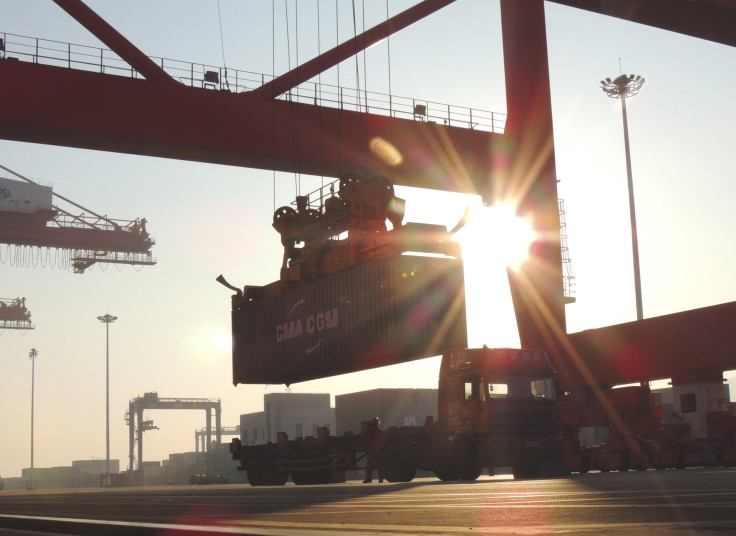Asian Stocks Rise As China GDP Meets Expectations

UPDATE: 9:18 p.m. EST -- Asian stock markets gained after China reported fourth-quarter growth that met expectations. Its gross domestic product expanded 6.8 percent for the quarter and 6.9 percent for the year, the government said.
Japan’s Nikkei 225 advanced 0.2 percent, the Shanghai Composite climbed 0.5 percent and Hong Kong’s Hang Seng Index rose 0.7 percent. Singapore’s STI gained 0.4 percent, reversing an earlier loss, and Australia’s ASX 200 increased 0.6 percent. South Korea’s Kospi fell 0.1 percent.
Original Story:
Asian stock markets opened mixed Tuesday, with China expected to report economic growth slowed slightly in the fourth quarter and oil extended its decline. China’s slowdown has contributed to falling oil prices and turmoil in the country’s stock markets, with the effects of both rippled around the world.
Japan’s Nikkei 225 rose 0.3 percent, Australia’s ASX 200 gained 0.4 percent and shares in Shenzhen added 1.5 percent. Singapore’s STI fell 1.4 percent, while South Korea’s Kospi and New Zealand’s NZX 50 were little changed.
Economists expect China to announce its gross domestic product grew 6.8 percent in the fourth quarter, compared with 6.9 percent in the third, in a report scheduled for Tuesday at 10 a.m. local time in Beijing (Monday at 9 p.m. EST). China is set to release December industrial-production and retail-sales data at the same time.
Meanwhile, oil fell below $28 a barrel to its lowest level since 2003, Reuters said, as traders anticipated the effect of Iran re-entering the already weak market. Iran said Sunday it would boost production by 500,000 barrels per day as the U.S. and other countries officially loosened economic sanctions in exchange for Tehran curtailing its nuclear program. Oil has dropped from more than $100 a barrel in mid-2014 amid the slowdown in China, the world’s second-biggest economy, a surge in U.S. crude production and Saudi Arabia’s refusal to cut output. That’s hurt not just oil-producing companies and countries but the many businesses that supply them.
“There’s a lot of bad news factored into global equity markets, and until we see the market starting to form a base, volatility is here to stay,” Niv Dagan, executive director at Peak Asset Management LLC in Melbourne, told Bloomberg Radio. When it comes to the Chinese economic data, “any figures above the expectations — given that there’s so much bad news already priced into global equity markets — you would expect to see some buying coming through,” he said.
© Copyright IBTimes 2024. All rights reserved.











